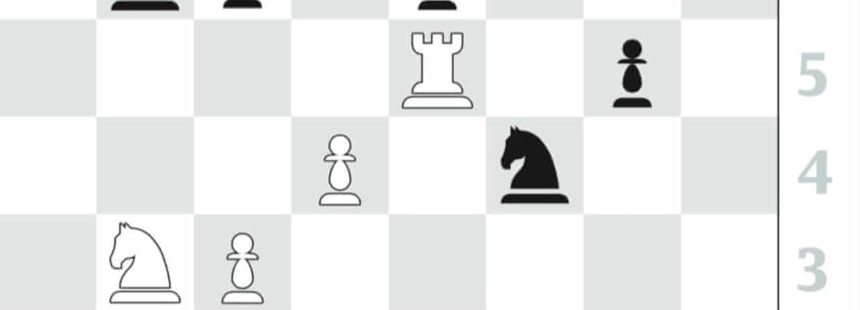

You can read the original article here.
By Leonard Barden
Garry Kasparov made a surging and inspired comeback in St Louis on Thursday and Friday nights after the legend, who many consider the all-time No 1, crashed two months ago in Zagreb, where he won only one game out of 18 and lost in seven moves to Azerbaijan’s Shak Mamedyarov. With just the ninth and final round to go, the Kaskparov had 5/8 and was still in contention for first prize.
The 58-year-old’s poor clock management and outdated openings in five-minute blitz contributed to his Zagreb disaster. This week’s format in the $150,000 Champions Showdown is Chess 9LX, also known as Fischer Random and Chess 960, where the back rank pieces start at random squares and the time limit is 15 minutes for the game plus per move increments, so that the clock plays a lesser role and opening knowledge is irrelevant.
It began promisingly for Kasparov as he drew his first game, and should have won the next against Wesley So, the unofficial world champion at this format who crushed Magnus Carlsen 13.5-2.5 two years ago in Oslo.
The former world champion opted for a cautious style with fixed pawn chains more reminiscent of his old foe Anatoly Karpov than of the sharp attacks that fans used to admire. But in round three nemesis struck, again in the shape of Mamedyarov, who calmly gained material and was a safe two pawns up when Kasparov resigned.
Unlike Zagreb, defeat did not derail Kasparov but inspired him to a cameo replay of his long ago legend. In Thursday night’s fourth round he won in fine attacking style in 24 moves against the 2018 US champion, Sam Shankland.
Kasparov’s fifth-round game reached a level ending in which he outwitted the world No 5, Levon Aronian, who is in process of transferring from Armenia to the US, and scored by delicate finessing with king, rook and g pawn against king, bishop and f pawn.
The 13th world champion capped a fine night with a sixth-round draw against the world No 2, Fabiano Caruana, then continued where he left off in round seven on Friday evening with a sparkling 24-move victory with the black pieces against his training partner and eight-time Russian champion Peter Svidler.
An early eighth-round draw by repeated position against the five-time US champion Hikaru Nakamura put Kasparov at least temporarily at the top of the table with 5/8 . There was just the ninth and final round, where he was due to meet France’s world No 10 Maxime Vachier-Lagrave, still to come late on Friday night.
The veteran’s comeback coincides with the relaunch of his Kasparovchess website, aimed at ambitious and improving players and where the legend’s efforts to regain his old spark in St Louis can be watched on Friday evening.
Fide’s 150-nation online Olympiad is heading for its climax this week as 40 teams battled in four all-play-all groups from which the top two qualify for next week’s quarter-finals. The format, teams of six players of whom three must be female and two must be under-20 juniors, favours Russia and China as the strongest nations in women’s chess.
By contrast the traditional four-board open and women’s Olympiads, scheduled to be revived post-pandemic at Moscow 2022, are more competitive. In 2018 Poland went close to causing a major upset, while England finished fifth. The United States, who won gold in 2016, silver in 2018, and will be a favourite again in 2022, fielded only second line grandmasters this week.
At the end of the group stage on Friday night, Kazakhstan, China, India, Hungary, Russia, Ukraine, USA and Poland qualified for Monday’s quarter-finals.
There are still some excellent individual match-ups, and the clash in Russia v Ukraine between Daniil Dubov and Vasyl Ivanchuk, two GMs renowned for creativity, did not disappoint as the veteran won with a well-timed exchange sacrifice.
England fielded their top quartet of Michael Adams, David Howell, Gawain Jones and Luke McShane, but were below strength on the womens’ and junior boards. They finished ninth of 10 in their group, defeating Colombia, drawing 3-3 with Cuba and Turkey, and losing their other six matches.
One of the few bright moments in the English performance was a victory for Adams against the rising US star Jeffery Xiong.
Norway chess at Stavanger, a six-player double-round tournament which continues until 17 September, is most likely the final time that Magnus Carlsen and Ian Nepomniachtchi will meet across the board until their $2m, 14-game world title match at Dubai in November. Draws in the classical game are immediately followed by an Armageddon game where White has 10 minutes, Black seven, but a draw counts as a win for Black.
These rules favour a bold approach by White in the Armageddon, and Nepomniachtchi won the most visual early game when he caught Alireza Firouzja with an old-style King’s Gambit which looked straight from the 19th century, and induced a losing blunder as early as move 10.
3780: 1..Qxe5! and Nakamura resigned in the face of 2 dxe5 Ne2+ 3 Kc2 Bg6+ 4 Qe4 Bxe4 mate. Other replies leave White at least a piece down.

